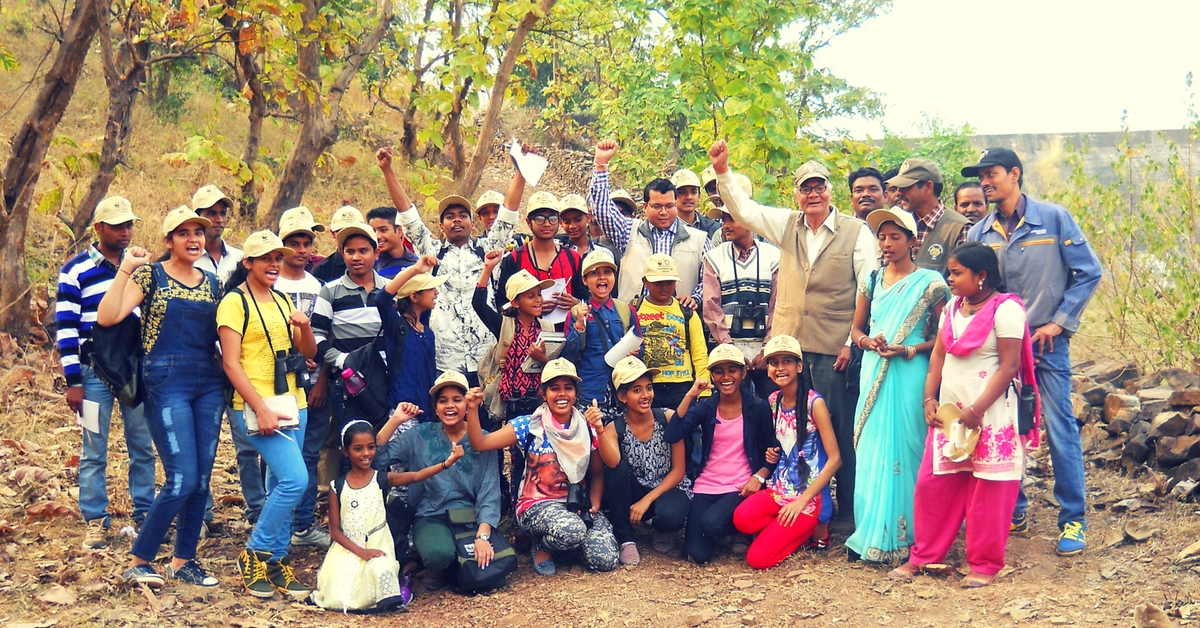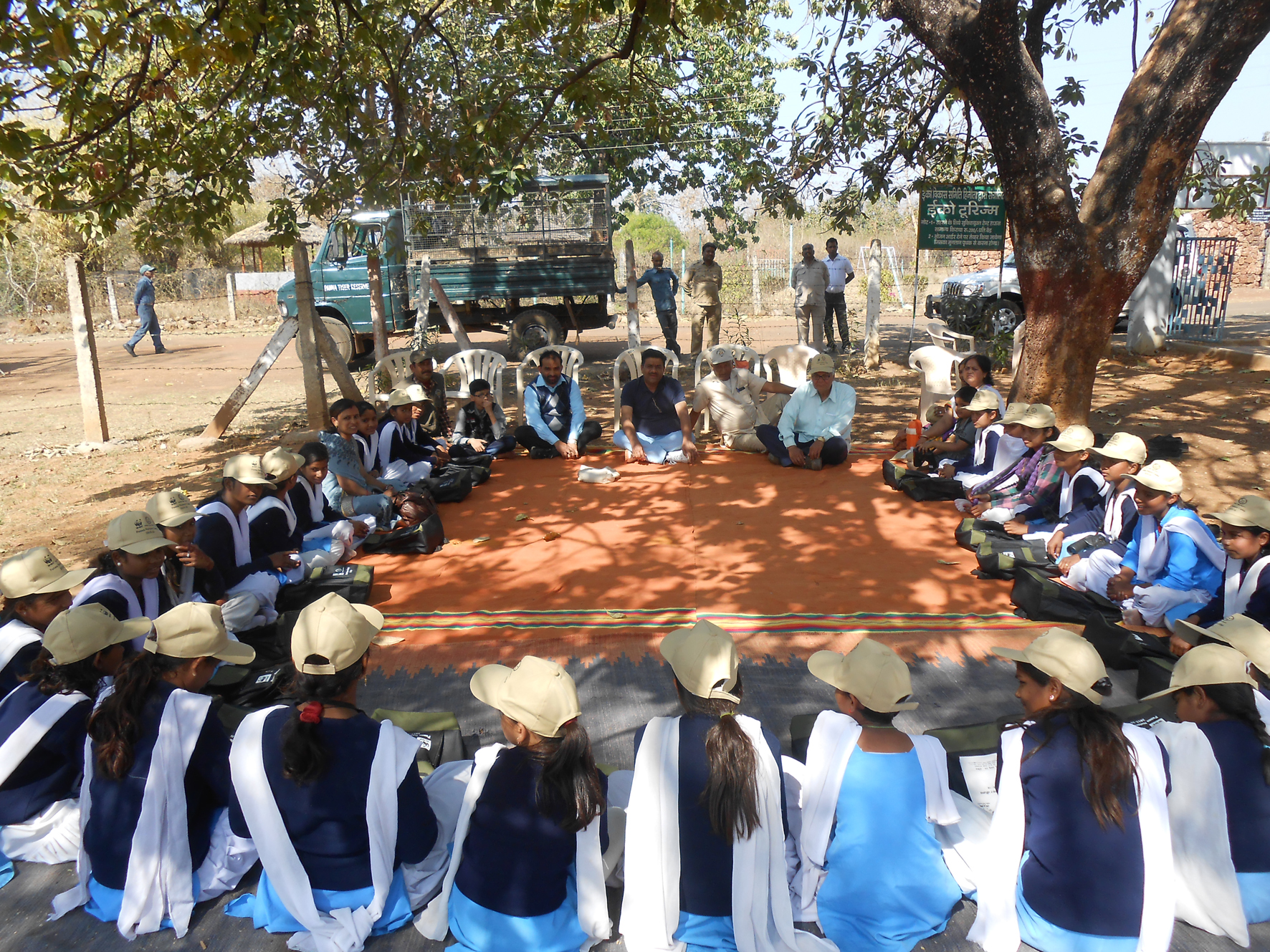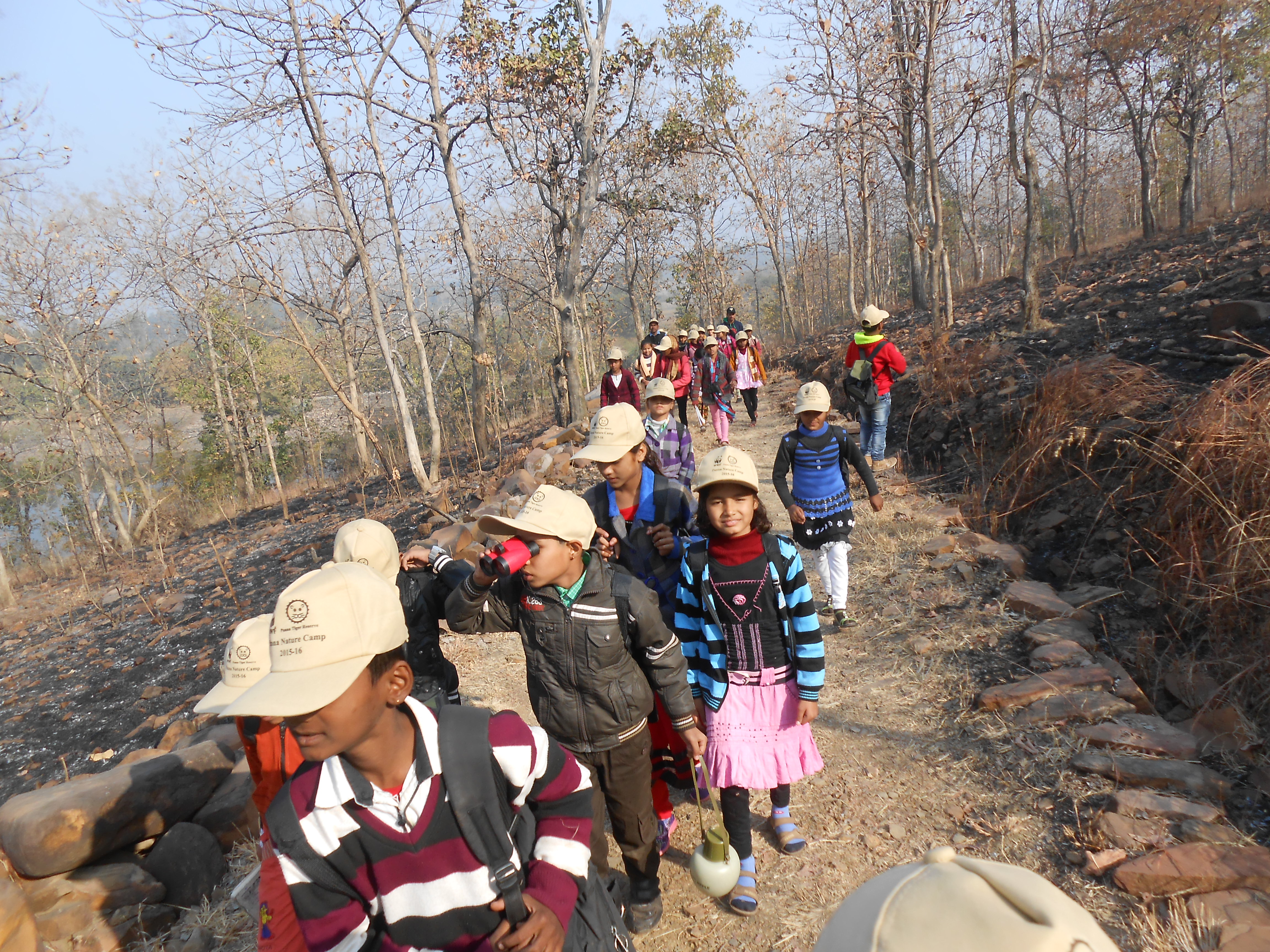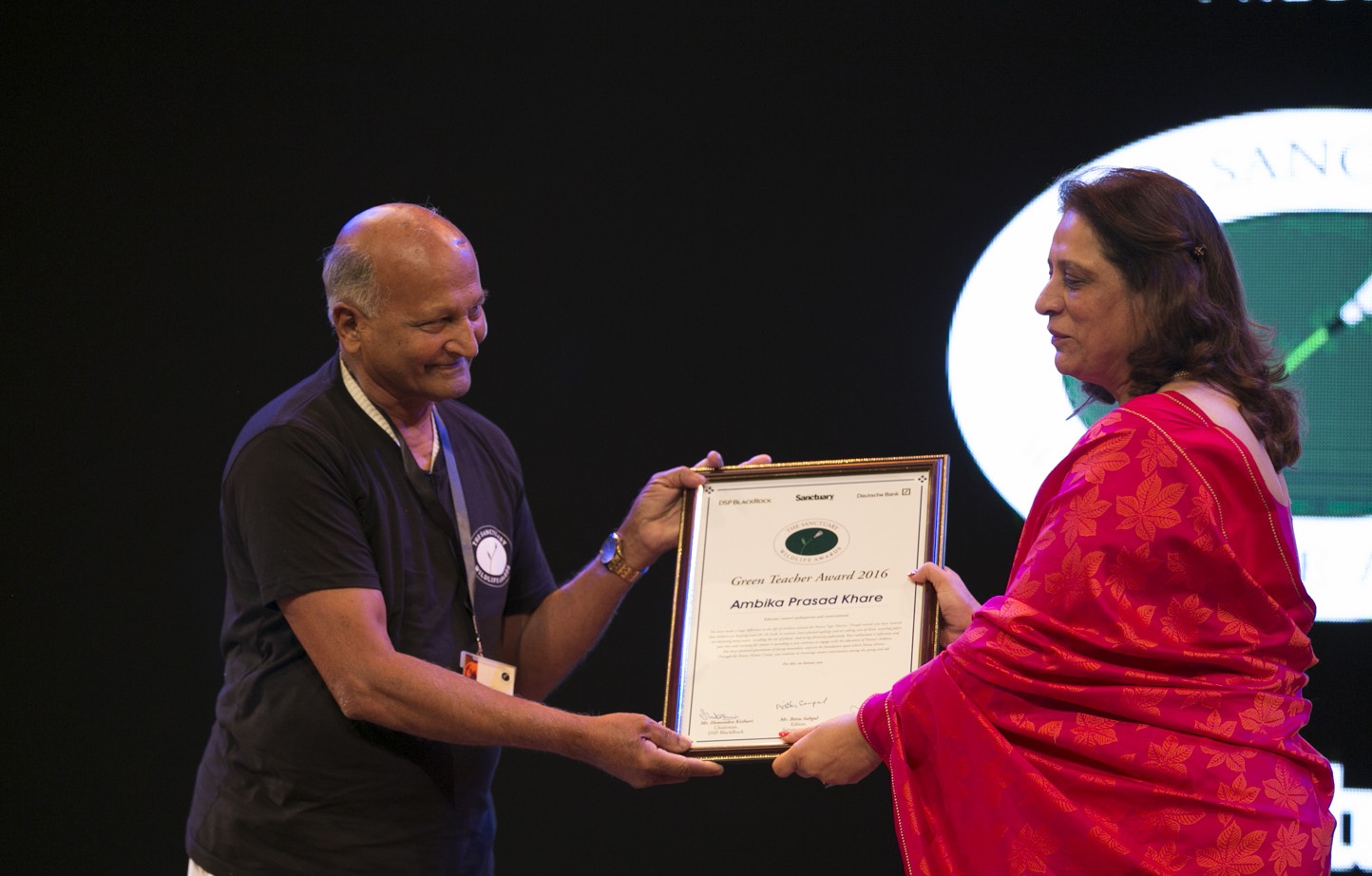Two Environmentalists Are Trying to Rekindle the Lost Bond between the Locals & the Forest at Panna
To increase awareness about wildlife conservation among the local community, especially students, 84-year-old Ambika Khare and 74-year-old Devidutta Chaturvedi have been conducting nature camps at Panna Tiger Reserve since 2010.

To increase awareness about wildlife conservation among the local community, especially students, 84-year-old Ambika Khare and 74-year-old Devidutta Chaturvedi have been conducting nature camps at Panna Tiger Reserve since 2010.
Wildlife sanctuaries and nature parks serve as sacred sanctums where we preserve and conserve a slice of nature in our modern urbanised world. But while we build these enclosures for the safekeeping of the flora, fauna and wildlife, the bond between the local population and the forest is severed in the process. As the area is restricted and accessible only to tourists and travellers at a rather handsome cost, locals become more and more detached from the forest in their own backyard.
Panna Tiger Reserve, a prime tiger-land located in Vindhyan Hills in northern Madhya Pradesh, is trying to fill this void by conducting Panna Nature Camps. These camps are meant to involve the local population in conservation of the reserve.

Two veteran teachers, 84-year-old Ambika Khare and 74-year-old Devidutta Chaturvedi have been conducting these camps since 2010. They were recently presented with the Sanctuary Asia 2016 Earth Heroes ‘GreenTeacher’ Award.
In 2009, when it was officially accepted by the Forest Department that Panna had lost all its tigers, the authorities decided to take a few steps to reverse the damage. Aside from implementing tiger reintroduction programmes and increasing anti-poaching measures, the need to spread awareness and start a dialogue with the local community was realised. Considering that the local participation often plays a major role in the work of conservation, the authorities started thinking of different ways to involve locals and the Panna Nature Camps were born. The camps, started in collaboration with the WWF-India, were a tool to spread knowledge and awareness and to invoke a sense of ownership and pride in the reserve among locals.
Also read: MY STORY: When I Met Anupam Mishra – Water Conservationist, Environmentalist, a Man of Gentle Wit!
The camps are organised in the reserve every Sunday, starting from the first Sunday of November and continue till the last Sunday of February.
“The one-day camp starts at sharp 6:00 am and concludes around 6:30 in the evening. We try to have a mix of indoor as well as outdoor activities that include nature games, discussions, presentations, quizzes and two trails in the reserve. We allow a maximum of 30 people in each camp, which ensures that every person gets some individual attention from the mentors. There’s a preference given to students between Classes 4 – 12,” says Chaturvedi.
So far, 119 camps have been organised at the reserve with a total of 3,703 participants.
On some occasions, the camps are also organised for special interest groups like media organisations, NGOs, forest department members, or particular schools and colleges.

“Khare and Chaturvedi have forwarded the cause of tiger conservation by moulding generations of nature-lovers. The response these camps receive is amazing. I have observed that many children who attend these camps turn into wildlife enthusiasts. When I came here to write a children’s book about Panna Tiger Reserve, I built my narrative through the eyes of a teenage girl who has visited the nature camp at Panna. Because it was just impossible to imagine Panna without the camps,” says naturalist Peeyush Sekhsaria, co-author of Our Tiger’s Return.
“Our camps have seen a great response from children. We try to increase awareness among students about the conservation of wildlife. I regularly visit schools in the area even after the camps and find that the children are habitually keeping water for the birds in summer, planting saplings, recycling paper and waste, avoiding plastic, and using electricity judiciously. Whenever I turn up, they are enthusiastic to show me their bird feeders and little plants. This gives us the energy to carry on!” says Chaturvedi.
Khare and Chaturvedi are both retired school teachers. Fondly called Ambika Sir by his students and campers, Khare used to teach Mathematics, Science and English. An educationist to the core, Khare inspired many through his teaching, including Chaturvedi. Once a student of Khare, Chaturvedi is now his long time collaborator.
As age is slowly catching up, the duo is currently in the process of ensuring that the camps go on smoothly in the future. They have spent the past two years training Manish Rawat and Bhavani Patel to carry the work forward.

Photo courtesy: Sanctuary Asia
The camps are conducted at a nominal fee of Rs. 150 for children and Rs. 300 for adults to encourage participation.
“One of the unique things about the Panna Nature Camps is the regularity. We have been doing this continuously for the past six years and there haven’t been any irregularities so far. We announce the camp dates at least six months in advance on our website so that people can plan accordingly. This is an initiative that every nature park should take up. We are trying to convince other sanctuaries and parks to replicate this model. While there are such camps at other wildlife reserves, they are not held regularly enough,” said Vivek Jain, the director of Panna Tiger Reserve.
Also read: Six Success Stories in India That Will Show You How Biogas Can Save Money, the Environment, & More!
To know more about Panna Nature Camps, visit the official website of Panna Tiger Reserve here.
Like this story? Or have something to share? Write to us: [email protected], or connect with us on Facebook and Twitter.
NEW: Click here to get positive news on WhatsApp!
This story made me
- 97
- 121
- 89
- 167
Tell Us More
We bring stories straight from the heart of India, to inspire millions and create a wave of impact. Our positive movement is growing bigger everyday, and we would love for you to join it.
Please contribute whatever you can, every little penny helps our team in bringing you more stories that support dreams and spread hope.



















